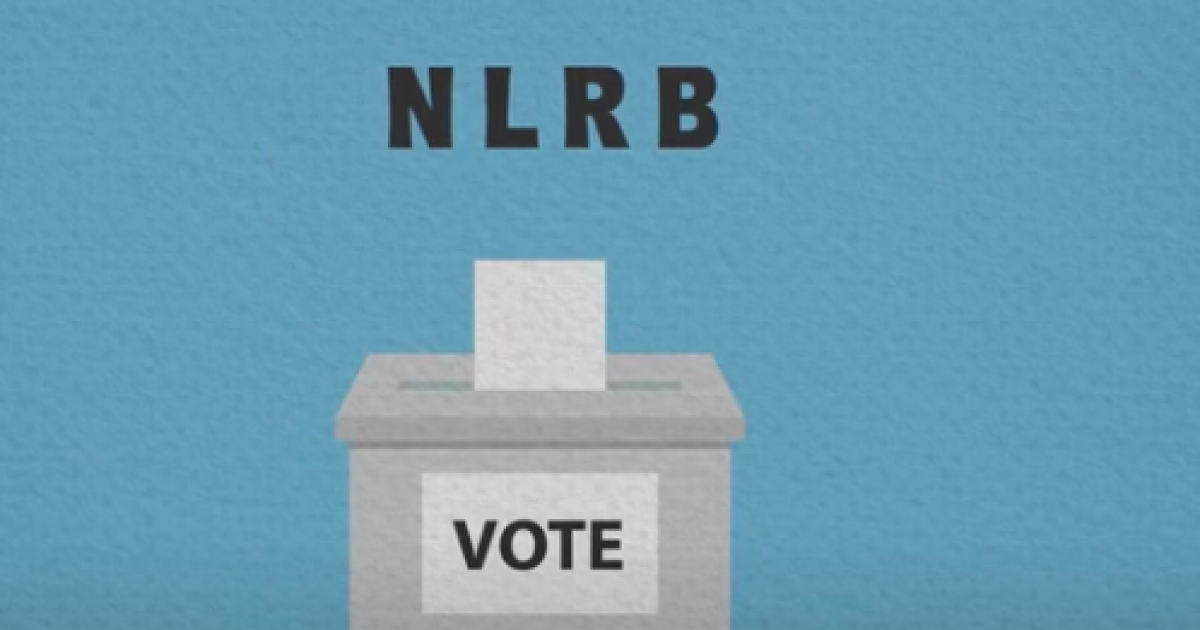
On April 22, 2020, the National Right to Work Legal Defense Foundation attorneys provided free legal aid to Michigan-based workers of the Rieth-Riley Construction Company in their efforts to petition the National Labor Relations Board (NLRB) in Washington, DC. Namely, they are asking the NLRB to allow them to exercise their right to hold a vote that would kick out the International Union of Operating Engineers (IUOE) Local 324 from their place of employment.
This request came after NLRB Region in Detroit held the workers’ petition in suspension based on flimsy charges IUOE officials had made. Last July, IUOE officials organized a strike against Rieth-Riley, which has initiated several construction projects across Michigan. Nevertheless, many of its workers have asserted their right to continue working despite the union officials’ demands and are now attempting to kick out the union.
The petition comes in the aftermath of the NLRB changing its rules dealing with how the agency treats “blocking charges.” These are motions that union officials file against employers in an attempt to stop rank-and-file employees from voting the union out.
The NLRB’s new rules do at least recognize the inherent unfairness of the prior system. Now, in most cases, it will allow employees to hold a vote despite union “blocking charges.” Previously, union officials could maintain their power by blocking workers’ votes for months or even years on end while unrelated allegations made against employers would go through litigation. The new rule is expected to go into effect in August, following two months of delays because of what the Board claims to be Wuhan virus concerns.
The employee who filed the union decertification petition, Rayalan Kent, detailed in his request for review that he and more than 30 percent of his fellow co-workers initially tried to exercise their right to vote out IUOE Local 324 in March, when they filed a petition for NLRB Region 7 to hold such a vote. At that juncture, IUOE officials and Rieth-Riley had been negotiating for over a year and had not set up a contract, even after IUOE union bosses put forward a July 2019 strike order.
Although the petition has surpassed the requisite number of employee signatures needed to activate the vote under the Board’s rules, Region 7 officials informed Kent via email that the election would be delayed “pending the investigation” of charges filed by IUOE officials against the employer. However, the Region did not supply Kent with any information concerning the charges or “why they rose to the requisite level to block the employees’ petition.” The request for review also detailed that the exercise of Kent’s and his coworkers’ rights to a vote could be delayed “apparently indefinitely” because of Wuhan virus related delays in “blocking charge” cases.
According to the request for review, the three “blocking charges” that union bosses pressed against Rieth-Riley claim behavior that took place nearly two years ago in some cases and have no “causal connection” to the employees’ decertification petition. The Board’s delay of the election based on these flimsy charges, the request sustains, deprives Rieth-Riley employees of their right to vote out a union they reject as protected by the National Labor Relations Act (NLRA)
The request asks the NLRB to “order Region 7 to proceed to a secret-ballot election without further delay.” The request highlights that Region 7’s decision to continue roadblocking this election ignores “Petitioner and his fellow employees’ desire to liberate themselves from Local 324’s representation” and sacrifices “the employees’ free choice rights to an unpopular union’s claims.”
When it issued the new rule earlier in April, the NLRB alluded to dozens of times comments the Right to Work Foundation had submitted earlier in 2020. Those comments highlighted that the NLRB’s old rules regarding “blocking charges” served only to keep union bosses in power while prohibiting employees from asserting their right to vote out unwanted unions, were basically the product of board decisions that were friendly to forced unionization, and were not mandated by the NLRA.
Kent and his fellow employees are not the only Michigan workers putting up with election delays from NLRB Region 7. Lansing, Michigan transportation worker Sandy Harris is also requesting that the NLRB in Washington apply the new rules regarding “blocking charges” to allow a vote to kick out Amalgamated Transit Union (ATU) bosses to transpire at her workplace. Similar to Kent’s case, the vote was delayed without even as so much as a hearing to determine if the union’s charges have merit or if they have a causal connection to the employees’ request for an election.
“These cases show again how union officials, often with assistance of NLRB Region officials, have abused the NLRB’s ‘blocking charge’ policy to nullify workers’ right under federal law to vote out unwanted unions,” commented National Right to Work Foundation President Mark Mix. “The NLRB in Washington must take immediate action to protect employees’ free choice rights by not only reversing the decision to delay implementation of the new rule, but also by applying the new rule to all cases currently blocked under the old ‘blocking charge’ policy.”



